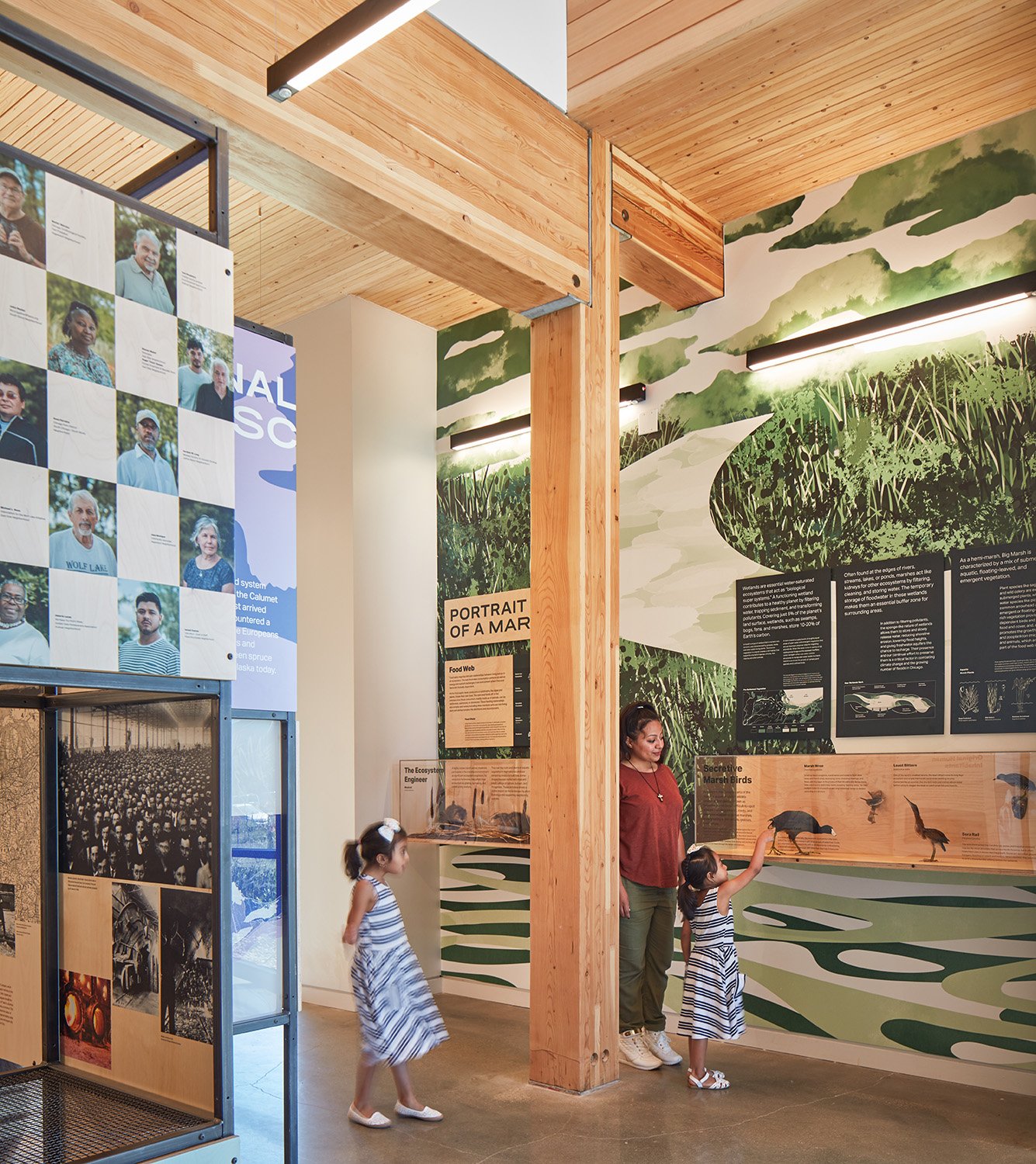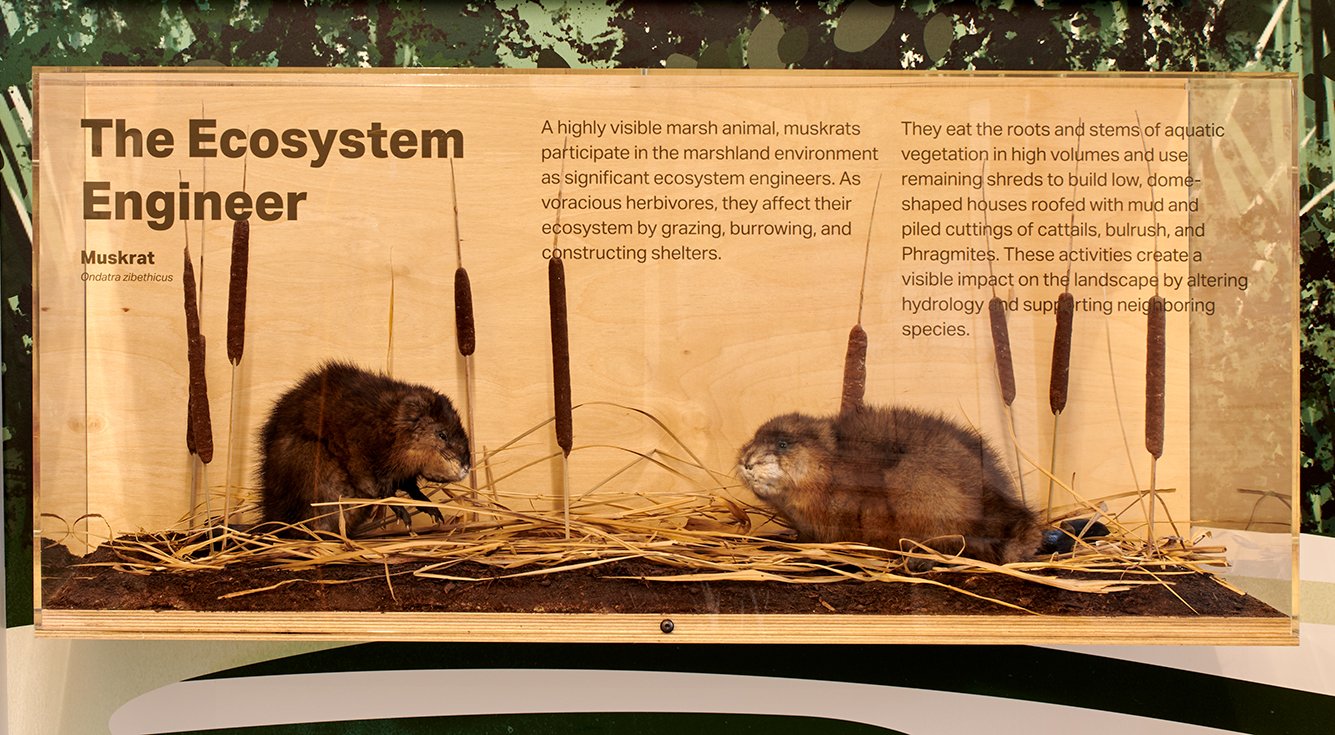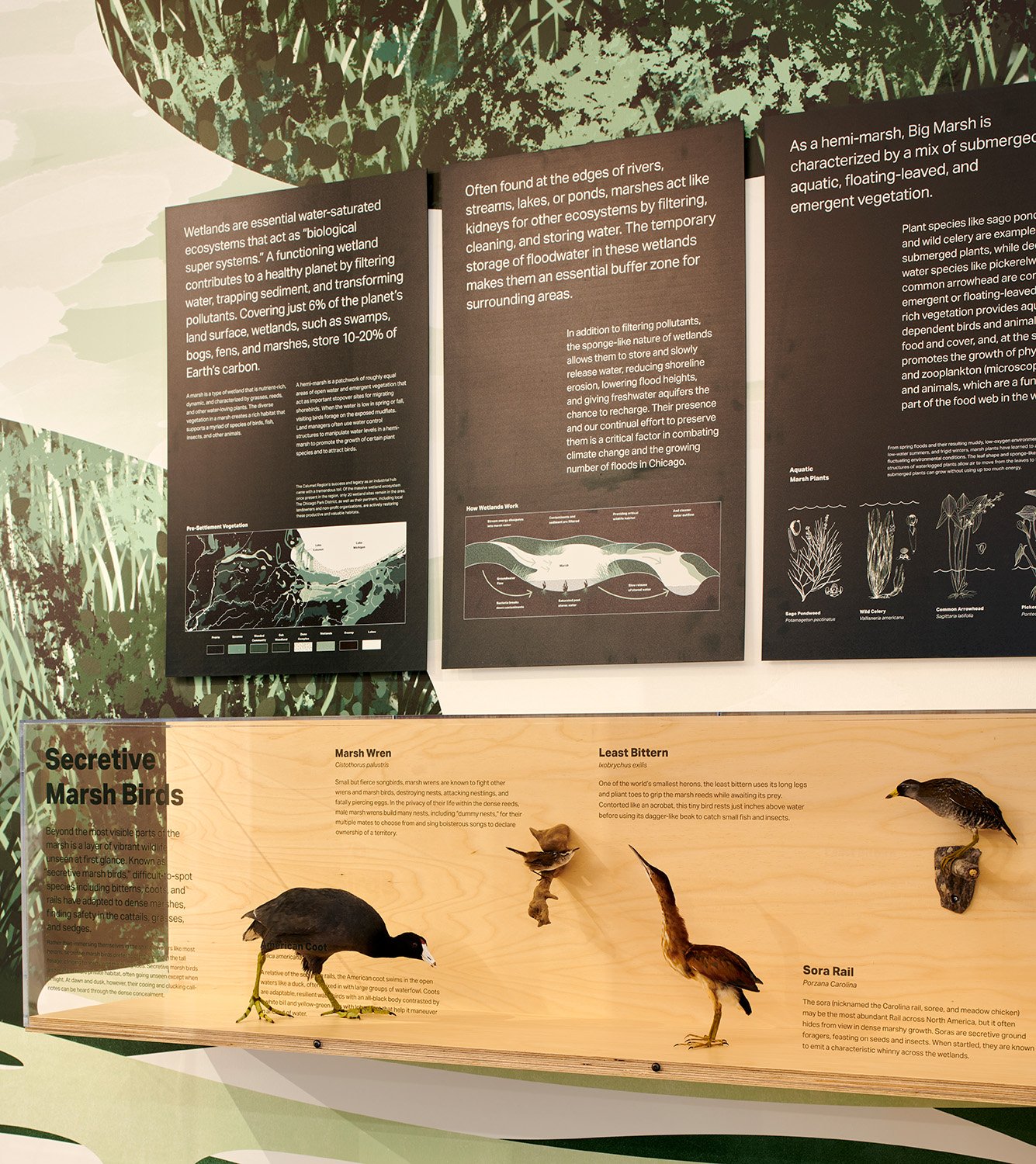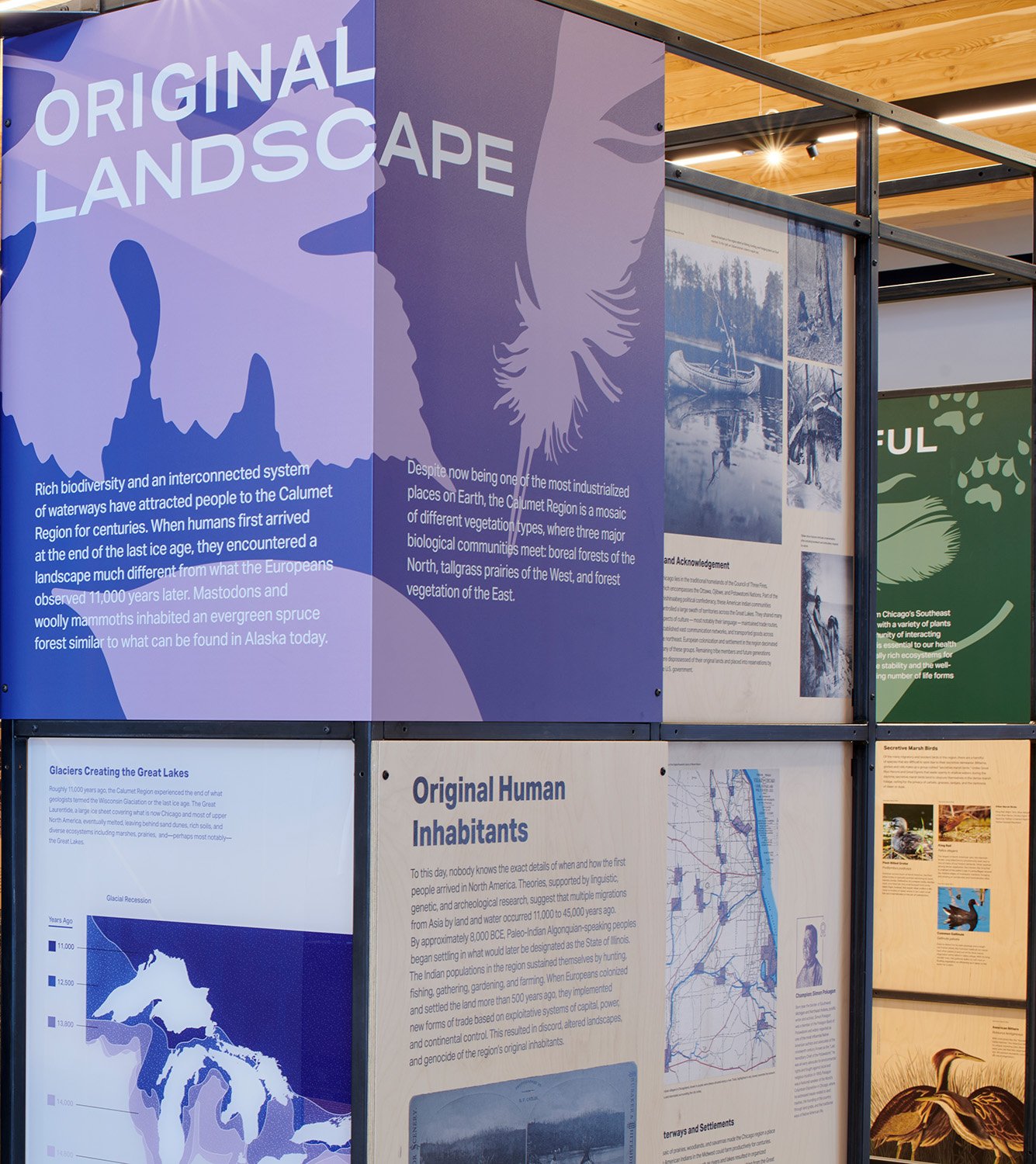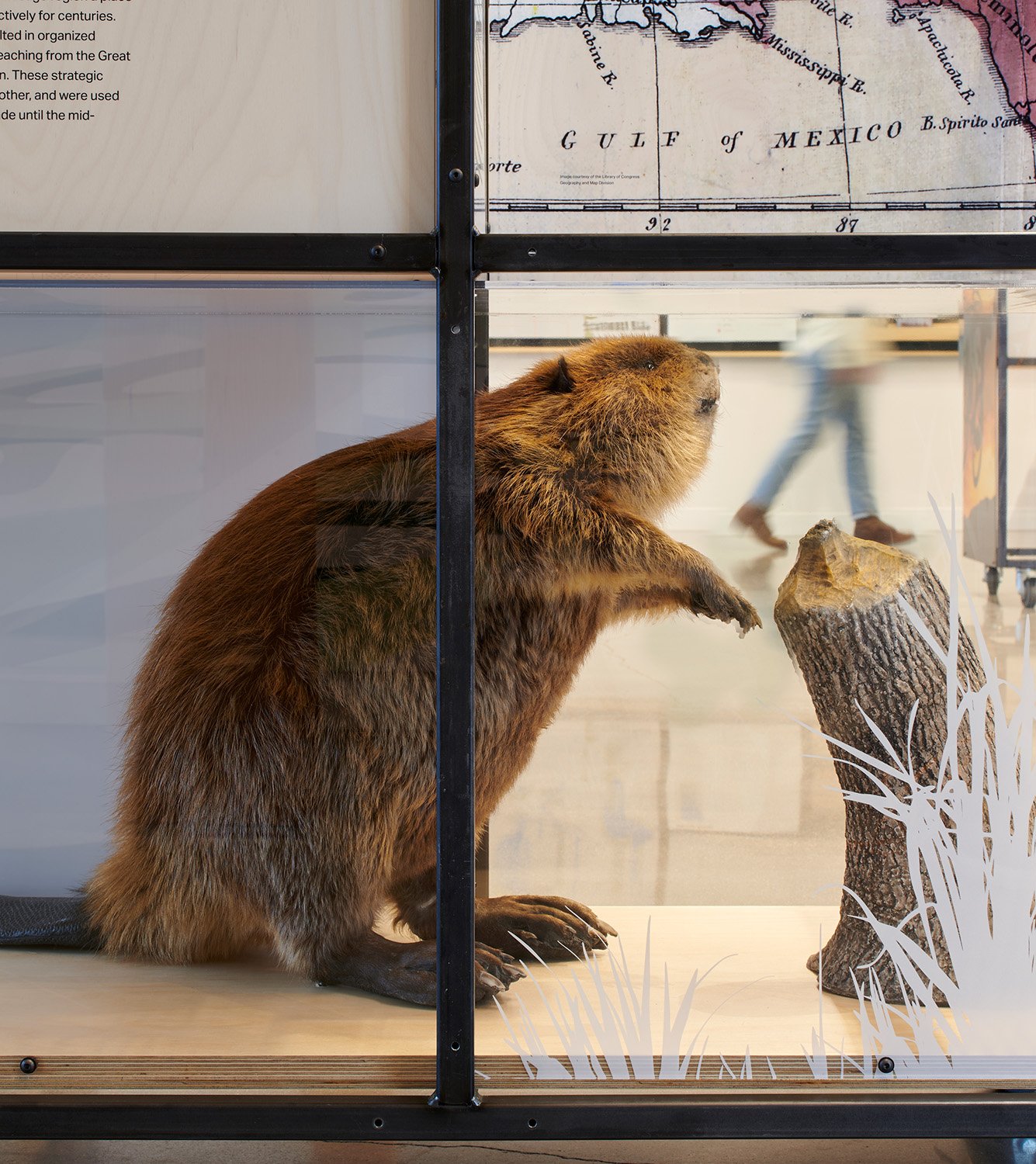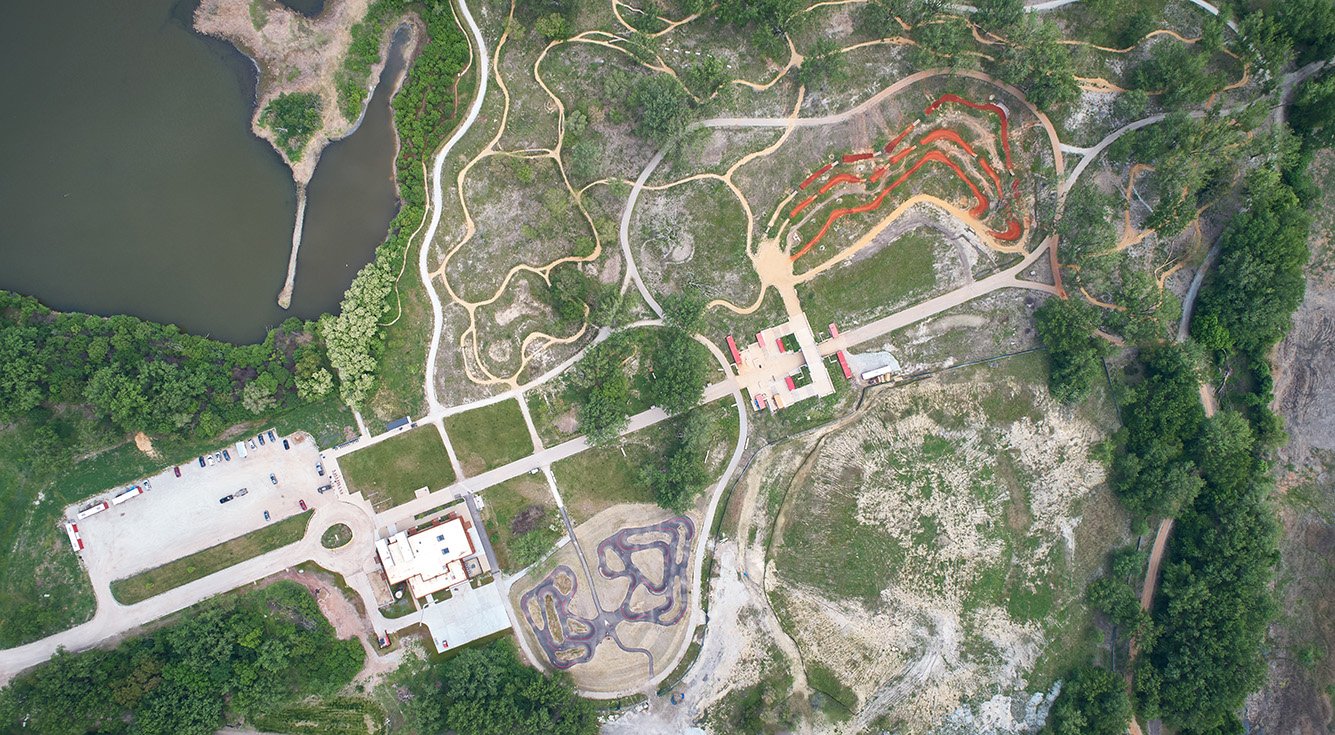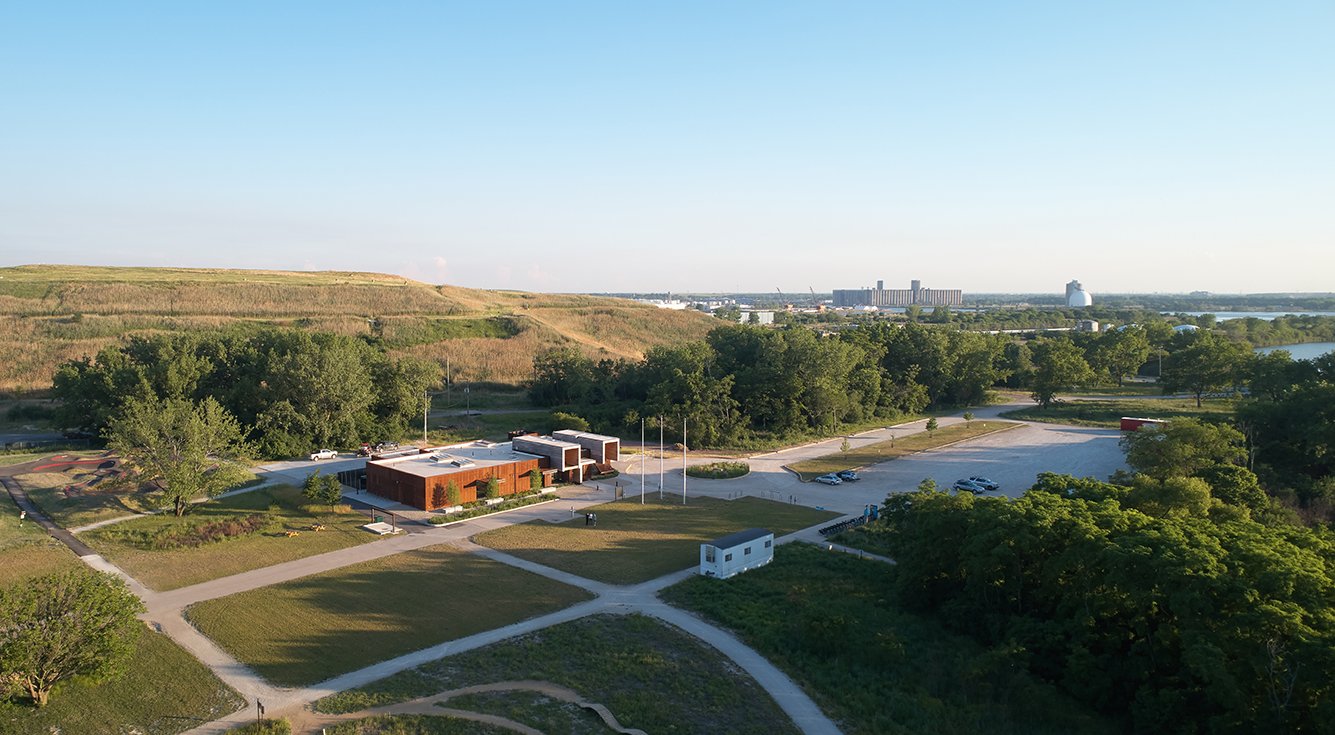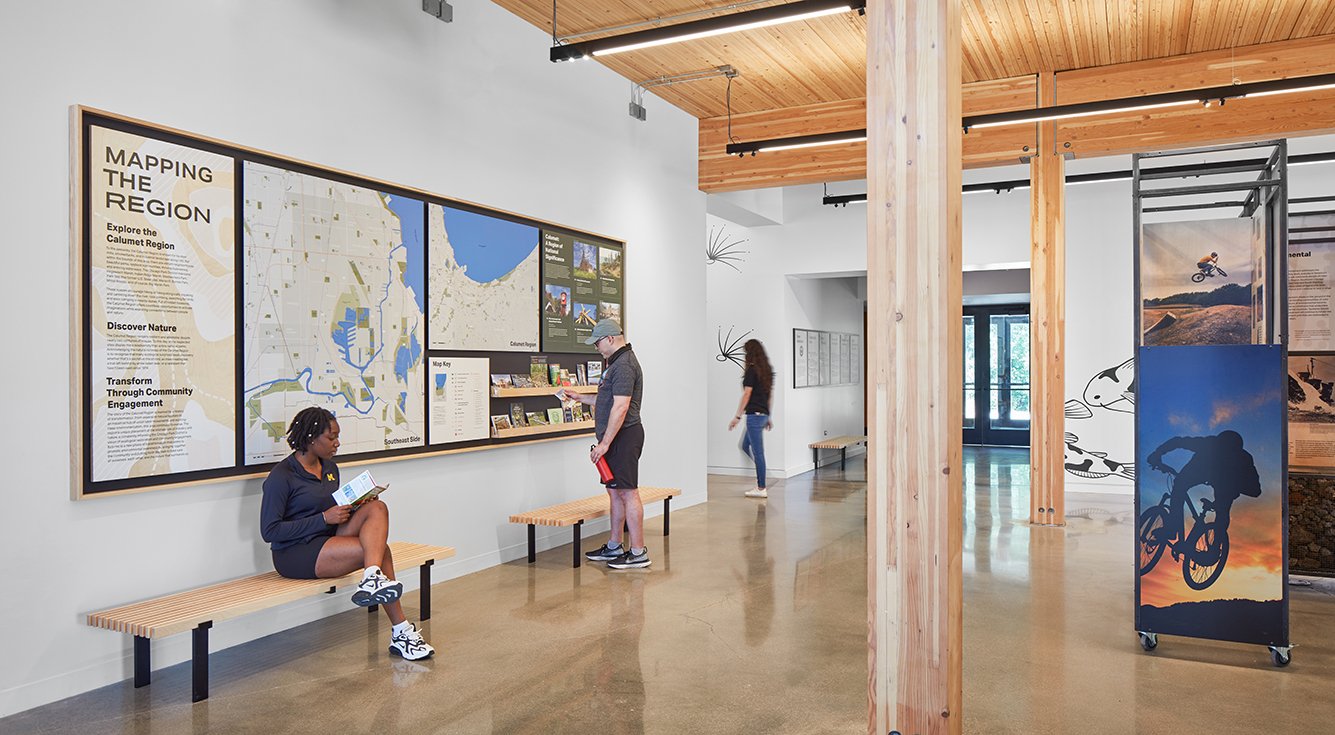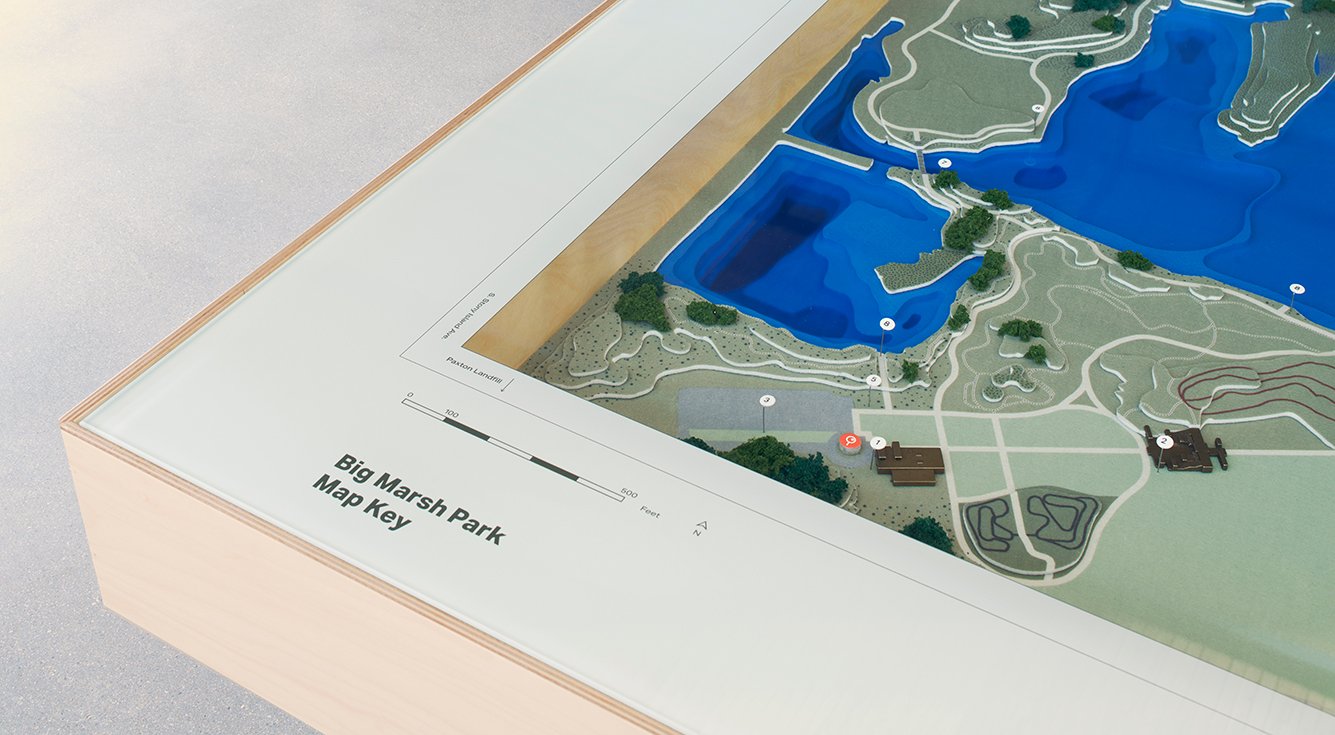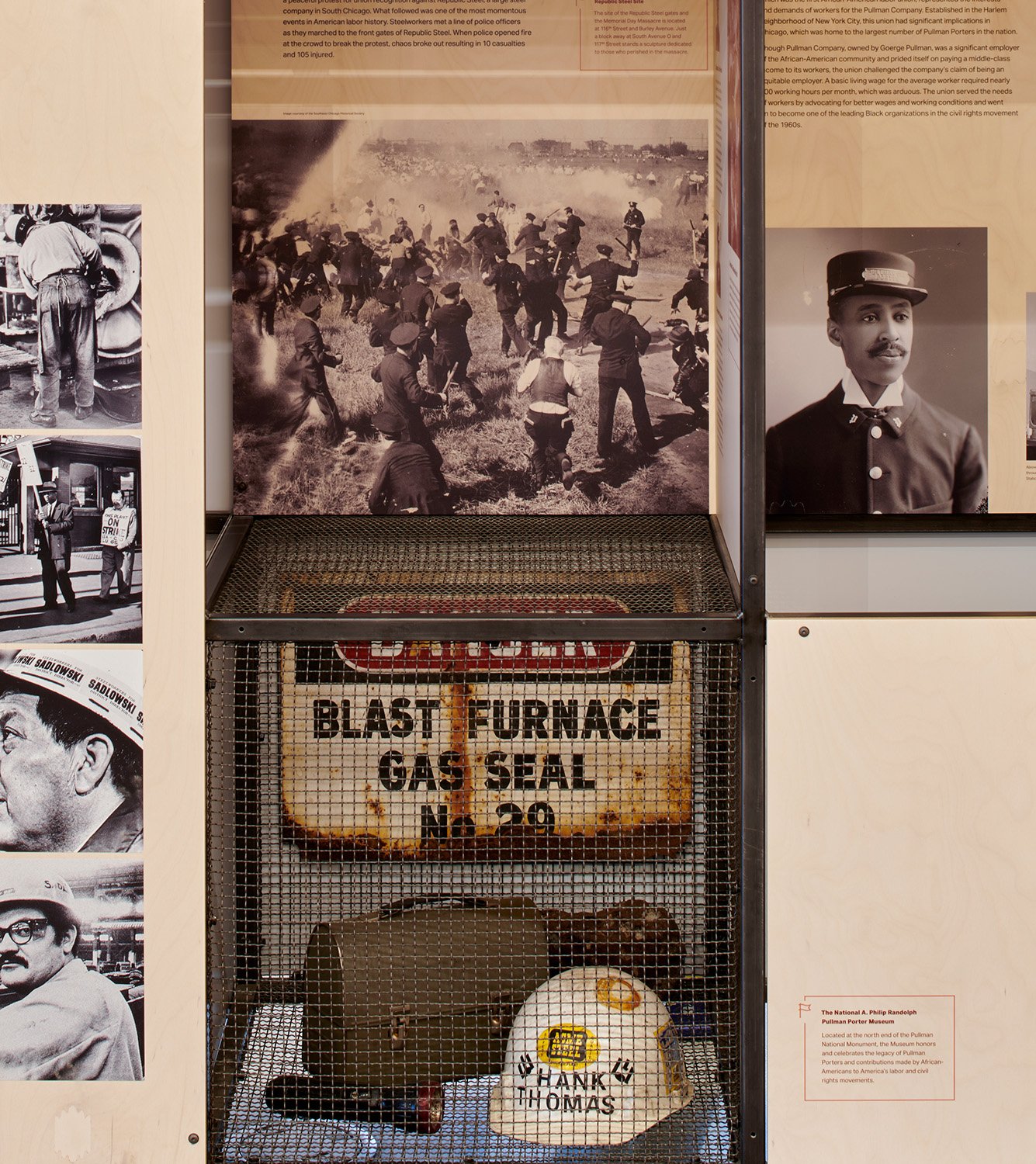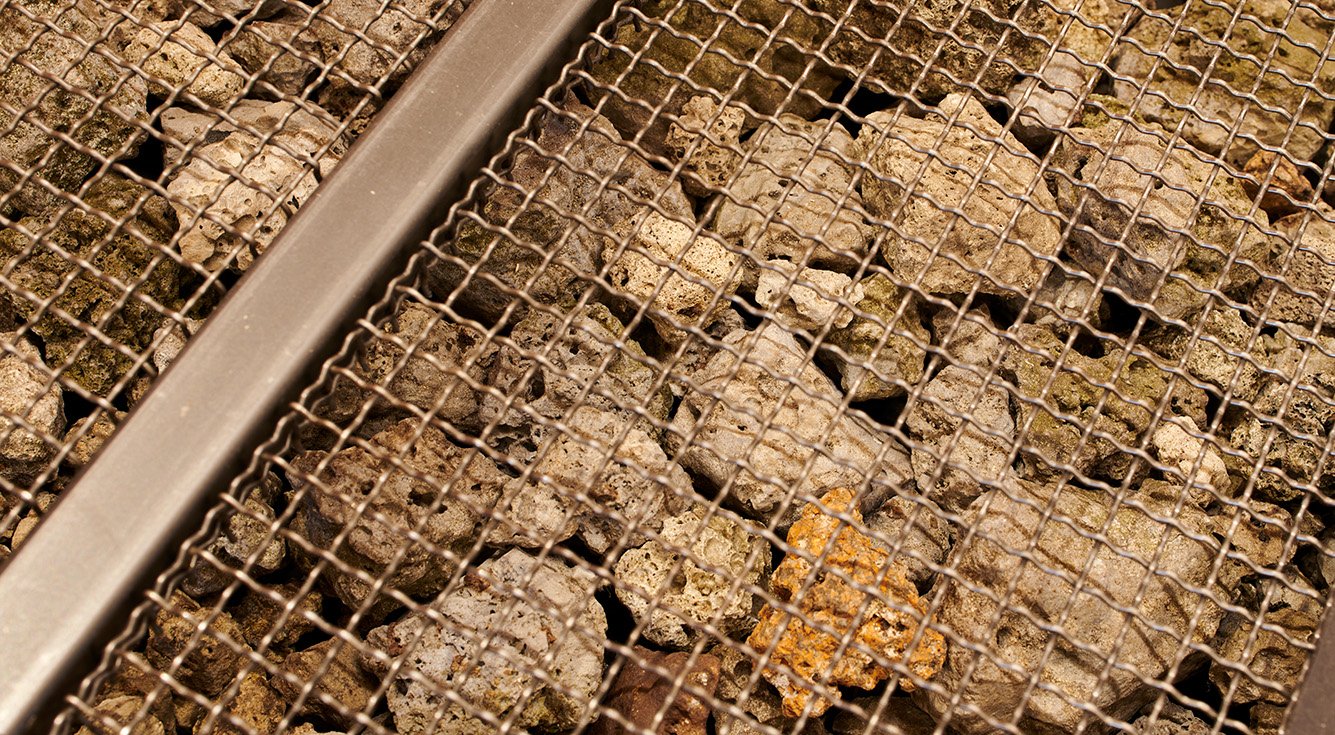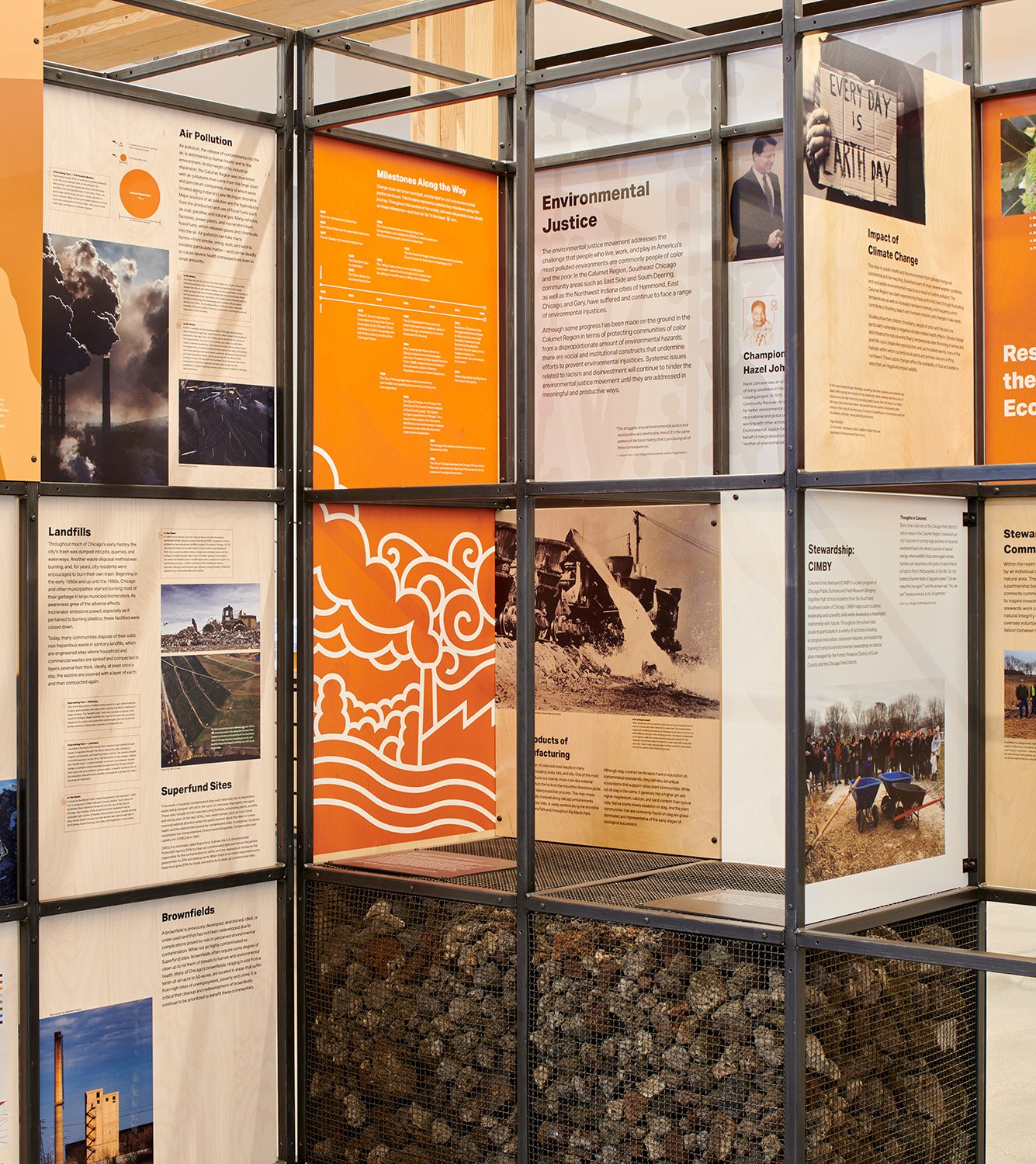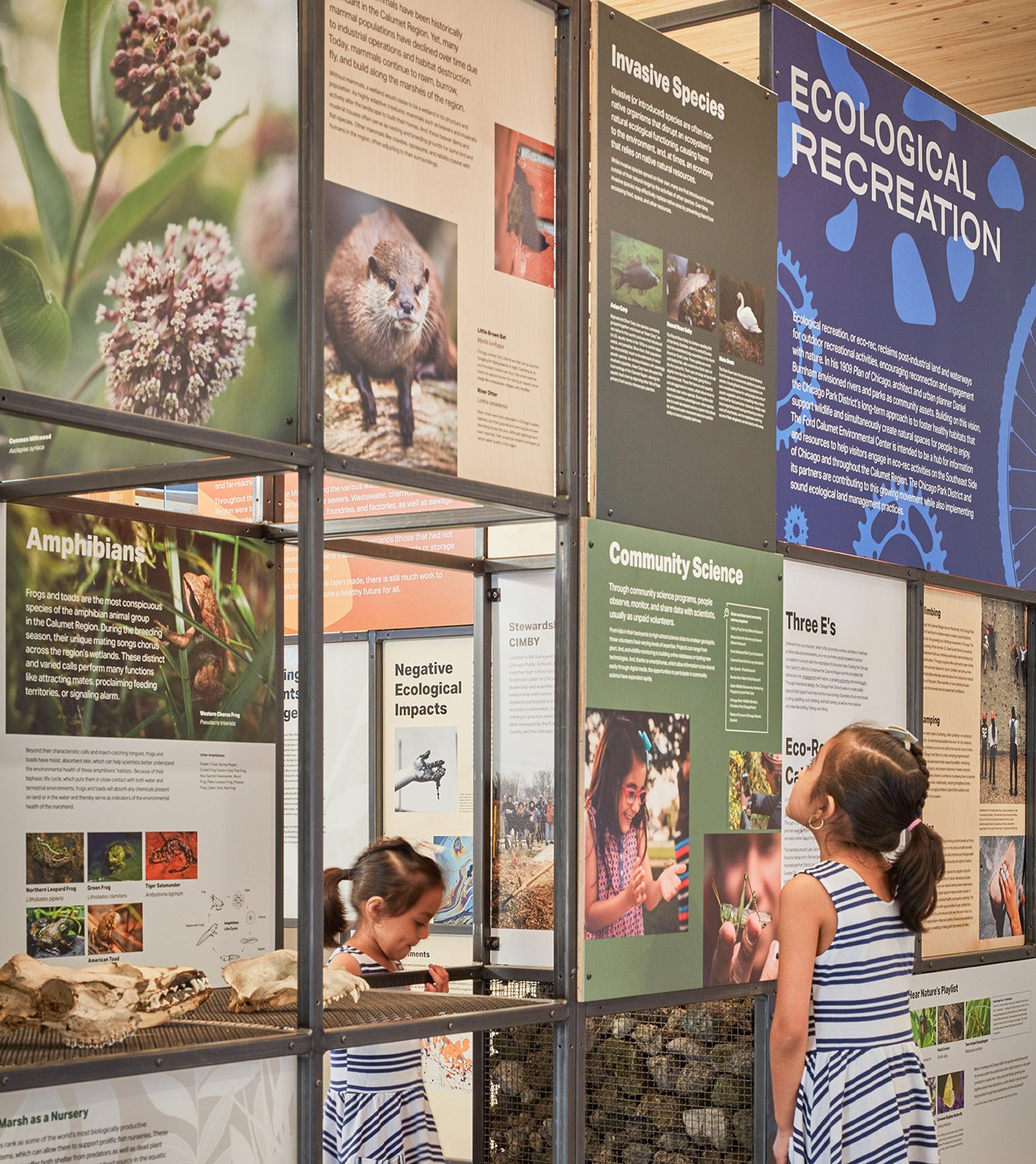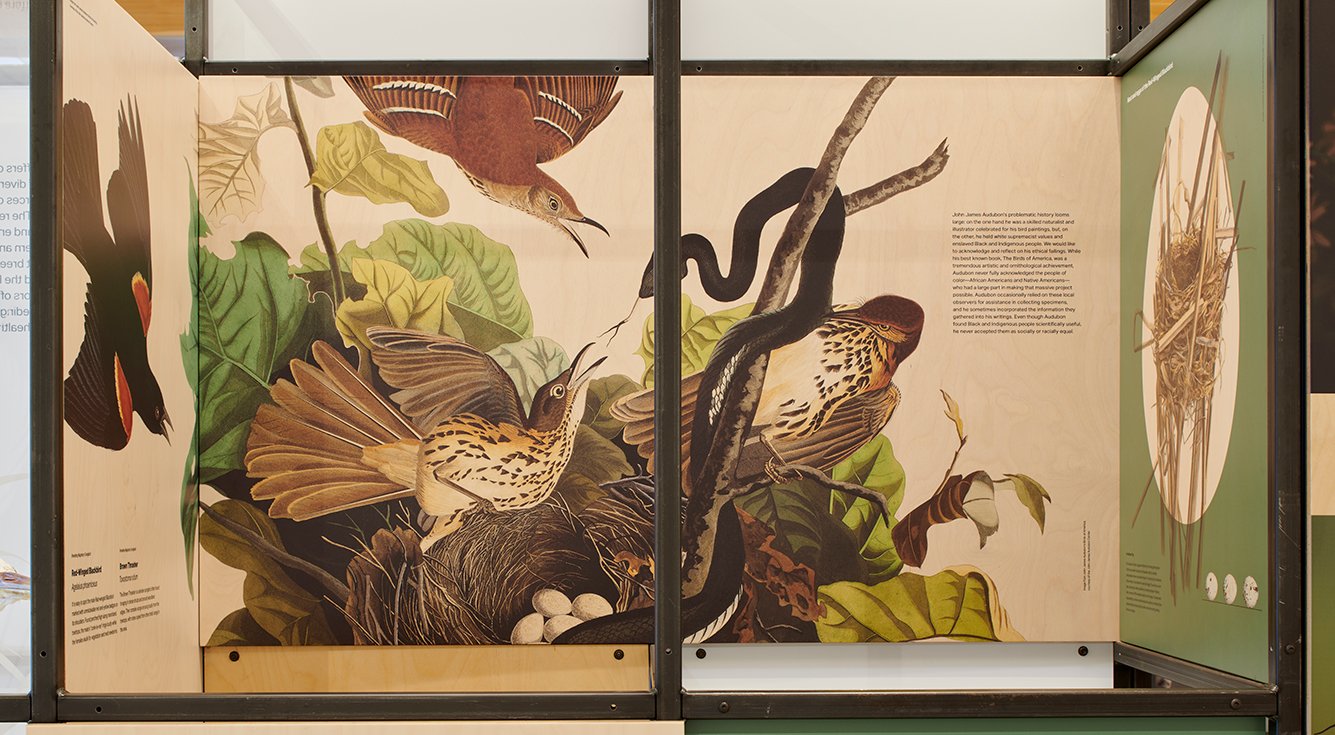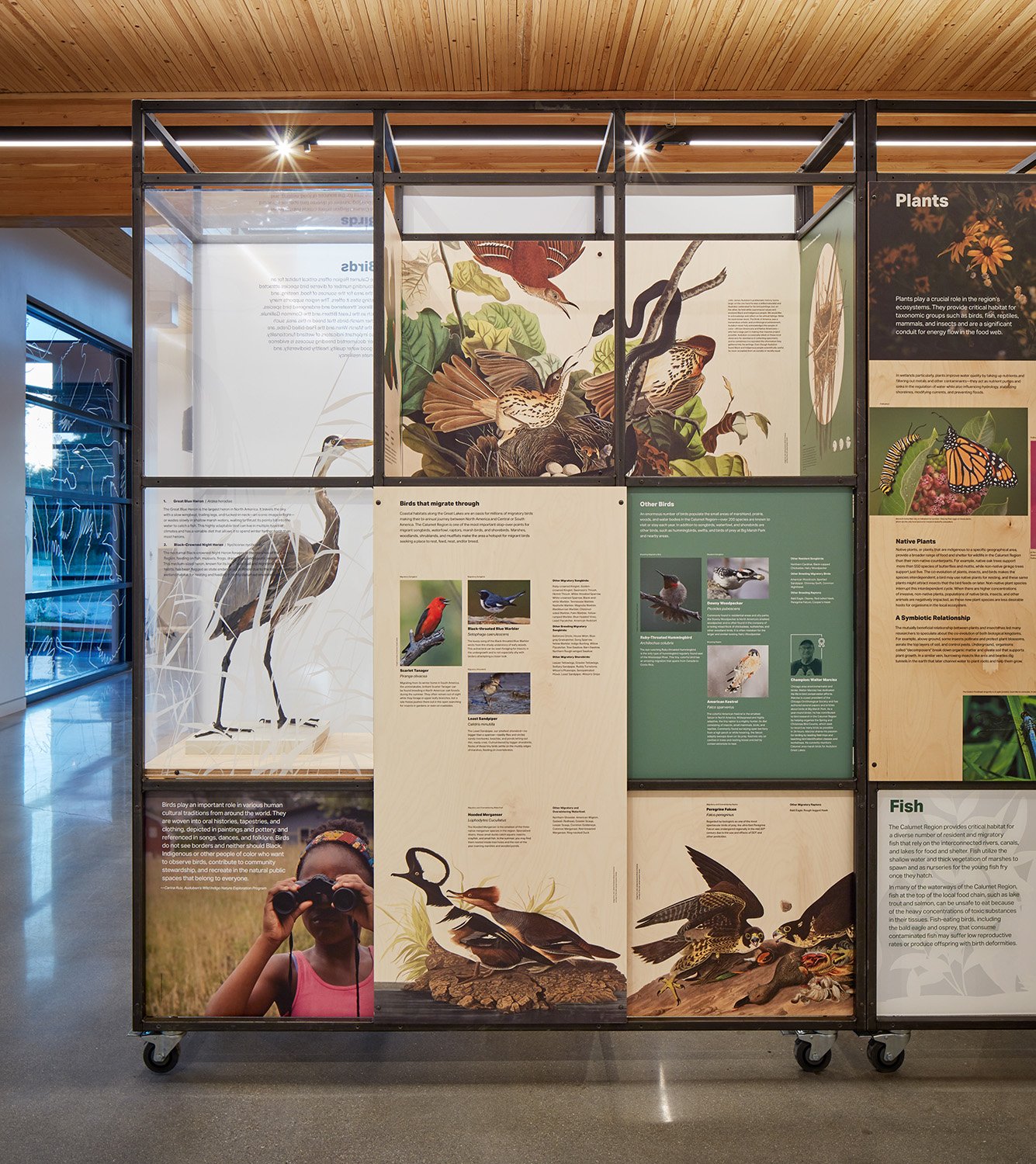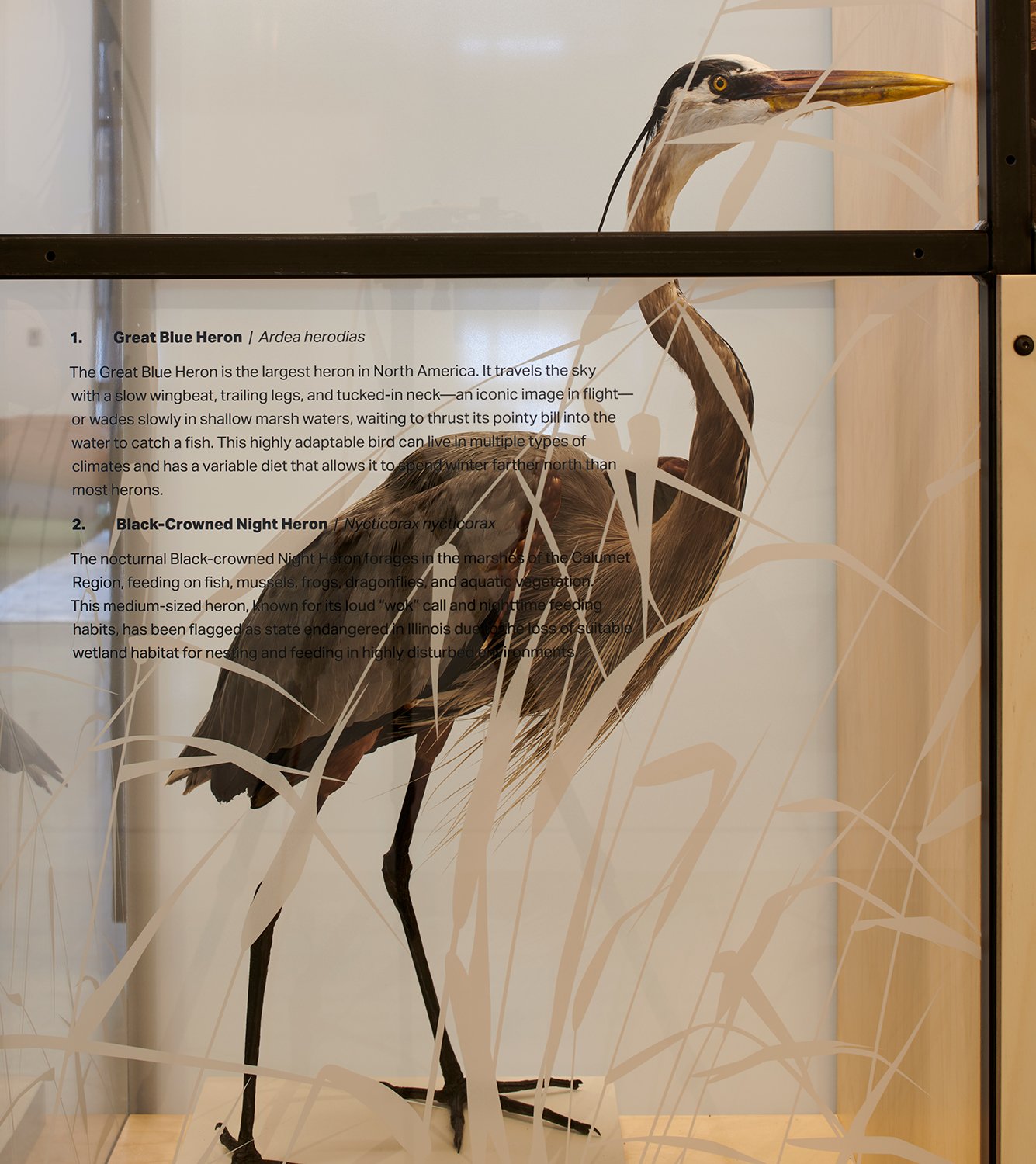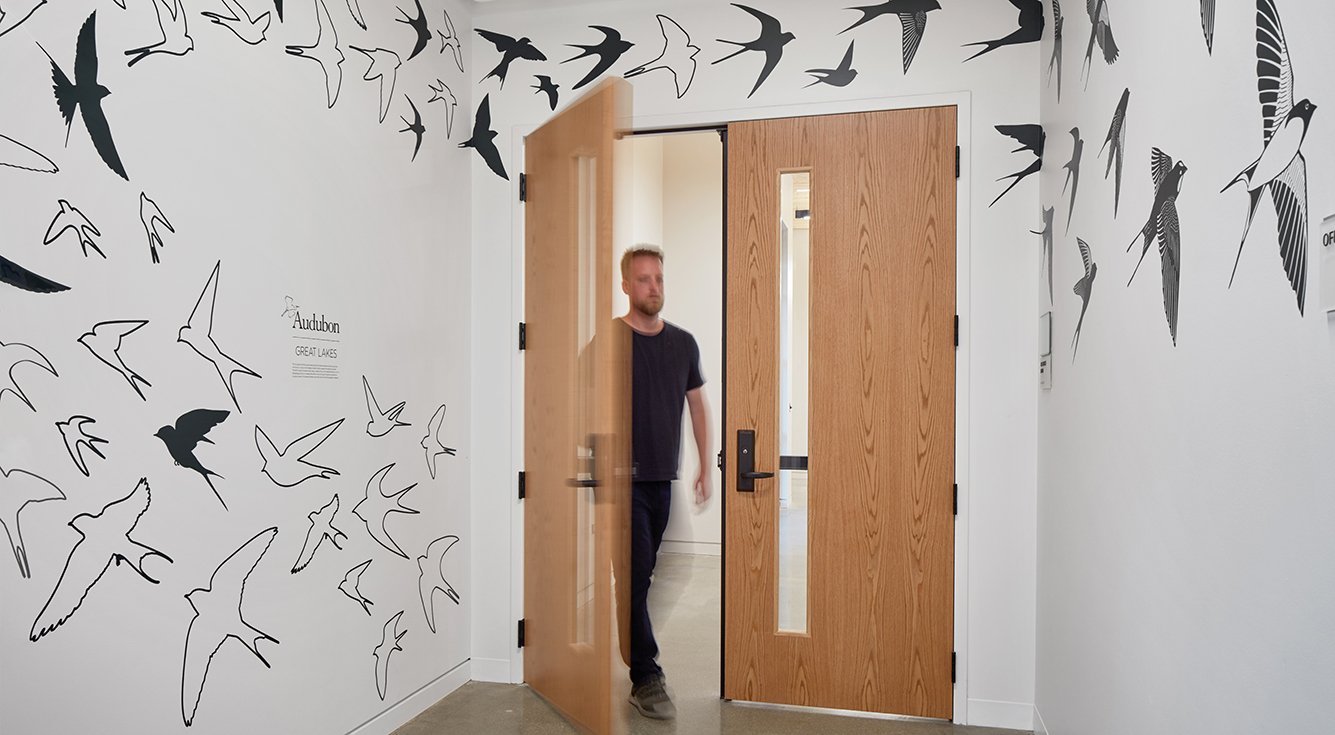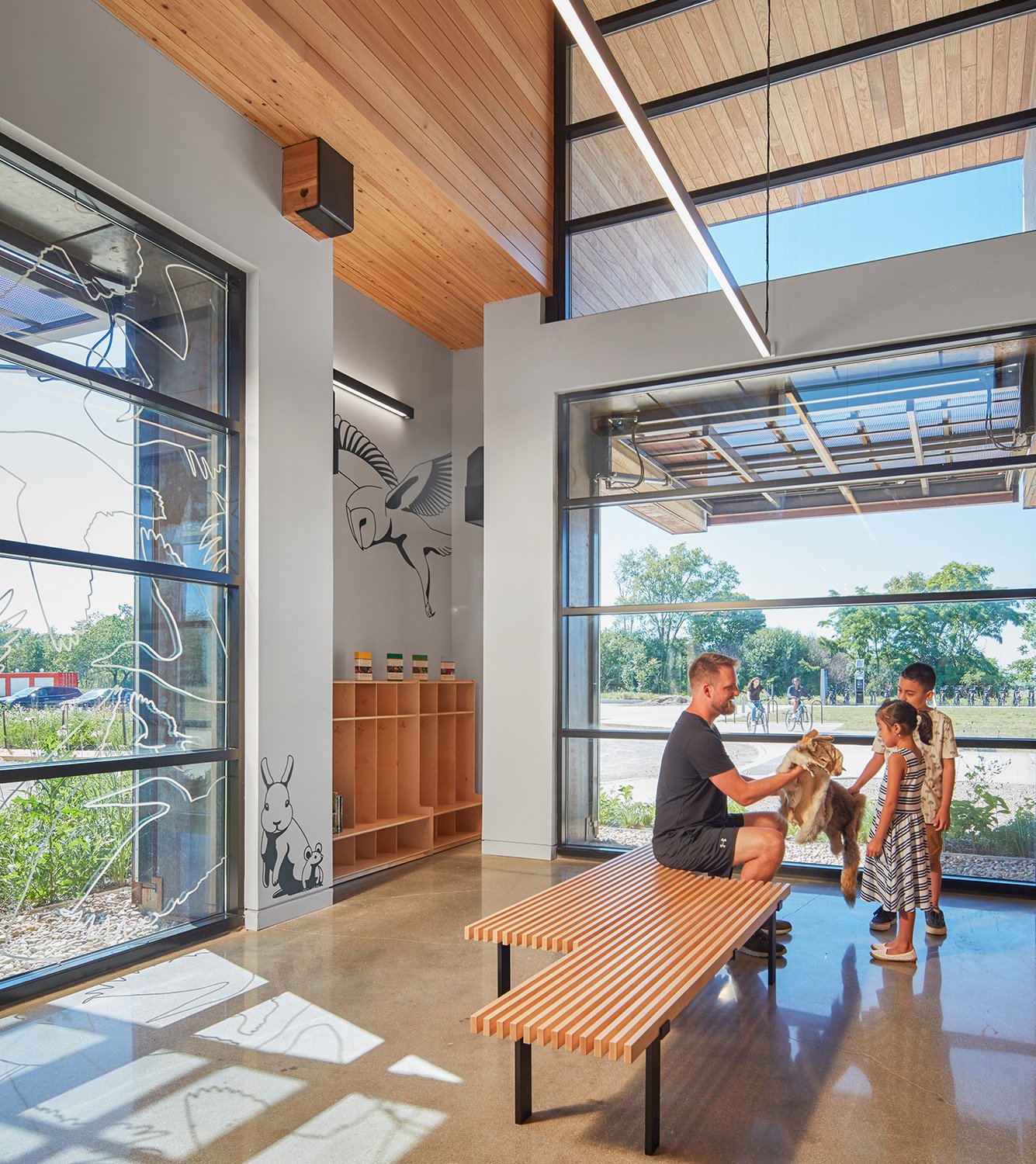Big Marsh Park is home to a 45-acre bike park and a series of walking trails that provide eco-recreation opportunities in Chicago’s Southeast Side. At the park’s entrance, the Ford Calumet Environmental Center (FCEC) serves as both a gateway and a hub. M–O partnered with various community members and stakeholders to design a permanent exhibition space in the environmental center that embodies the natural essence of Big Marsh.
The region once had a collection of thriving wetlands, migratory animals, and diverse native vegetation until the turn of the 20th century when industry boomed. Toxins and slag, a by-product of extracting precious metals from ore, became a part of the Big Marsh landscape. This continued until the 1970s, when community leaders and environmental activists successfully pushed for regulated industrial practices.
“Using the Calumet Region as a backdrop, the exhibit focused on the stewardship that has led to the reclamation of the Big Marsh site for eco-recreation, encouraging its exploration, discovery, and transformation for many years to come.”
The exhibit features a series of maps (both 2D and 3D) providing a visual of points of interest, activities and trails throughout the park and region.
Modular, mobile steel frame structures, create a hyper flexible and layered display case for content. Made of wood, steel, and acrylic panels, the exhibit’s materials are also reflective of the site’s industrial history and environmentally-responsive future.
“The goals of the environmental and educational facility permeated every decision we made during design. Exposing the NLT, showcasing the wetlands, using materials that evolve over time—are all used to promote the sustainable and educational ambitions of the Center.”
Ford Calumet Environmental Center - Big Marsh Exhibit
Lined by manufacturing facilities lies a big blue telltale sign of a habitat that prospered before the age of industrialization in the Midwest — Lake Calumet. The Calumet Region in Chicago’s Southeast Side once had a collection of thriving wetlands, migratory animals, and diverse native vegetation until the turn of the 20th century when industry boomed. Toxins and slag, a by-product of extracting precious metals from ore, became a part of the Big Marsh landscape. This continued until the 1970s, when community leaders and environmental activists successfully pushed for regulated industrial practices.
Now, restorative efforts have aimed to set Big Marsh on a new course where industry, nature and culture can safely coexist and continue the legacy of the people who made the restoration possible. Big Marsh Park is home to a 45-acre bike park and a series of walking trails that provide eco-recreation opportunities in Chicago’s Southeast Side. At the park’s entrance, the Ford Calumet Environmental Center (FCEC) serves as both a gateway and a hub. M–O partnered with various community members and stakeholders to design a permanent exhibition space in the environmental center that embodies the natural essence of Big Marsh.
The main exhibition at the entrance houses modular, mobile steel frame structures that educate visitors about the site’s past and key characters that played a role in the development of the Calumet Region. Made of wood, steel, and acrylic panels, the exhibit’s materials are also reflective of the site’s industrial history and environmentally-responsive future. The series of mobile structures can be dismantled and stowed away, or moved toward the walls to clear the center of the exhibit for community gatherings and other activities. Each frame showcases exhibit content, from mounted graphic panels to physical objects — each explaining the history of the region through eight, highlighted time periods. Additionally, taxidermy of the animals native to the Calumet region are displayed in acrylic casings within the steel frames. A fox, heron, beavers, and various bird species show visitors the natural beauty that surrounds them in what used to be a struggling ecosystem.
A permanent display on the marsh ecosystem includes a series of 2D maps on the region and booklets that explain points of interest, highlight activities and hiking trails. A mobile 3D map provides a visual representation of the park in its entirety and its special moments. On the opposite wall of the main room, the permanent exhibit features taxidermied avian species of the region in acrylic cases, with imprinted descriptions of each bird. Wrapping the walls of the facility, nature graphics of animals, grasses, and other scenery play with the sense of scale and serve as an extension of the exhibit throughout the space.
The exhibit is a part of Big Marsh’s restorative process to re-embrace and care for its natural landscape, giving a nod to the inhabitants of the region that called for social and environmental justice. The facility is now a part of the Marsh’s timeline, recounting and immortalizing its story in the exhibit at the Ford Calumet Environmental Center.
Location
Chicago, Illinois
Services
Placemaking
Wayfinding
Exhibition
Research
Strategy
Environments
Awards
Winner-Exhibit Design, Fast Company
Best of Best-Educational Building, Architecture Masterprize
Winner-Green Space, Time Out Chicago
Winner-Environmental Impact, Interior Design
Bronze, International Design
Honorable Mention, Architect's Newspaper
Press
Landscape Architecture Magazine
Metropolis
ArchDaily
Photography
Tom Harris
Francisco Lopez de Arenosa
Partners
Chicago Park District
Southeast Chicago Historical Society
Field Museum
Audubon Great Lakes
Malia Haines Stewart
Stella Brown
Terry Evans
Matthew Kaplan
Architecture by
Valerio Dewalt Train




